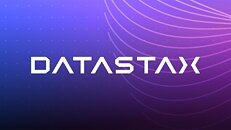- Joined
- Oct 9, 2007
- Messages
- 47,527 (7.48/day)
- Location
- Hyderabad, India
| System Name | RBMK-1000 |
|---|---|
| Processor | AMD Ryzen 7 5700G |
| Motherboard | ASUS ROG Strix B450-E Gaming |
| Cooling | DeepCool Gammax L240 V2 |
| Memory | 2x 8GB G.Skill Sniper X |
| Video Card(s) | Palit GeForce RTX 2080 SUPER GameRock |
| Storage | Western Digital Black NVMe 512GB |
| Display(s) | BenQ 1440p 60 Hz 27-inch |
| Case | Corsair Carbide 100R |
| Audio Device(s) | ASUS SupremeFX S1220A |
| Power Supply | Cooler Master MWE Gold 650W |
| Mouse | ASUS ROG Strix Impact |
| Keyboard | Gamdias Hermes E2 |
| Software | Windows 11 Pro |
IBM today is announcing its intent to acquire DataStax, an AI and data solution provider. DataStax's technology will enhance IBM's watsonx portfolio of products accelerating the use of generative AI, helping companies unlock value from vast amounts of unstructured data. The acquisition also builds on IBM's commitment to open-source AI. DataStax is the creator of AstraDB and DataStax Enterprise, NoSQL and vector database capabilities powered by Apache Cassandra; and Langflow, the open-source tool and community for low-code AI application development.
IBM will continue to support, engage, and innovate with the open-source Apache Cassandra, Langflow, Apache Pulsar, and OpenSearch communities in which DataStax participates. IBM's long-standing commitment to open-source AI includes the open-source IBM Granite foundation models and Instruct Lab, a revolutionary approach to advancing true open-source innovation around LLMs.

Businesses are struggling to harness valuable, unstructured data from across their business, which is critical for powering generative AI. Without tools to properly ingest and manage this untapped data, costly generative AI projects will fail to deliver their full potential. Even 70% of companies with high-performing generative AI initiatives experience data-related difficulties, according to McKinsey, and it is estimated that just one percent of enterprise data is represented in today's AI models.
IBM is a leader in helping clients scale generative AI and transform their business using enterprise data. The acquisition of DataStax enhances these efforts. Their vector database excels at harnessing unstructured enterprise data and accelerating its time to value, and Langflow provides a graphical, low-code design environment and component orchestration for generative AI apps that facilitates collaboration across diverse skillsets.
"Enterprises want to deliver production AI fast, but are still struggling to unlock the value in their data to power AI applications and agents," says Chet Kapoor, Chairman and CEO of DataStax. "DataStax's products solve this problem, accelerating AI's promise with the scalability, security, and accuracy developers and enterprises need. We've long said that there is no AI without data, and are excited to execute this vision with IBM."
DataStax's hundreds of customers include FedEx, Capital One, The Home Depot and Verizon. DataStax was founded in 2010 and is headquartered in Santa Clara, CA.
Financial details of the transaction were not disclosed. The acquisition is expected to close in the second quarter of 2025, subject to customary closing conditions and regulatory approvals.
View at TechPowerUp Main Site
IBM will continue to support, engage, and innovate with the open-source Apache Cassandra, Langflow, Apache Pulsar, and OpenSearch communities in which DataStax participates. IBM's long-standing commitment to open-source AI includes the open-source IBM Granite foundation models and Instruct Lab, a revolutionary approach to advancing true open-source innovation around LLMs.

Businesses are struggling to harness valuable, unstructured data from across their business, which is critical for powering generative AI. Without tools to properly ingest and manage this untapped data, costly generative AI projects will fail to deliver their full potential. Even 70% of companies with high-performing generative AI initiatives experience data-related difficulties, according to McKinsey, and it is estimated that just one percent of enterprise data is represented in today's AI models.
IBM is a leader in helping clients scale generative AI and transform their business using enterprise data. The acquisition of DataStax enhances these efforts. Their vector database excels at harnessing unstructured enterprise data and accelerating its time to value, and Langflow provides a graphical, low-code design environment and component orchestration for generative AI apps that facilitates collaboration across diverse skillsets.
- AstraDB and DataStax Enterprise provide NoSQL and vector database capabilities powered by Apache Cassandra, enabling production-ready generative AI applications for the enterprise. AstraDB will enhance the existing vector capabilities of IBM watsonx.data, IBM's hybrid, open data lakehouse for AI and analytics. Thousands of organizations use Apache Cassandra, including some of the biggest names in software, retail, finance, and ecommerce. Apache Cassandra provides scalability, availability, fault tolerance, high performance, and multi-data-center and hybrid cloud support. And increasingly, Apache Cassandra users are leveraging the database for AI workloads. In this context, DataStax brings together a mature datastore with vector and graphRAG capabilities - a critical combination for harnessing unstructured data for generative AI
- Langflow is a low-code, open-source app builder for RAG and multi-agent AI applications. It is Python-based and model-, API-, and database-agnostic. Langflow adds additional flexible middleware capabilities to IBM watsonx.ai, the integrated, end-to-end AI development studio for building generative AI applications
"Enterprises want to deliver production AI fast, but are still struggling to unlock the value in their data to power AI applications and agents," says Chet Kapoor, Chairman and CEO of DataStax. "DataStax's products solve this problem, accelerating AI's promise with the scalability, security, and accuracy developers and enterprises need. We've long said that there is no AI without data, and are excited to execute this vision with IBM."
DataStax's hundreds of customers include FedEx, Capital One, The Home Depot and Verizon. DataStax was founded in 2010 and is headquartered in Santa Clara, CA.
Financial details of the transaction were not disclosed. The acquisition is expected to close in the second quarter of 2025, subject to customary closing conditions and regulatory approvals.
View at TechPowerUp Main Site
